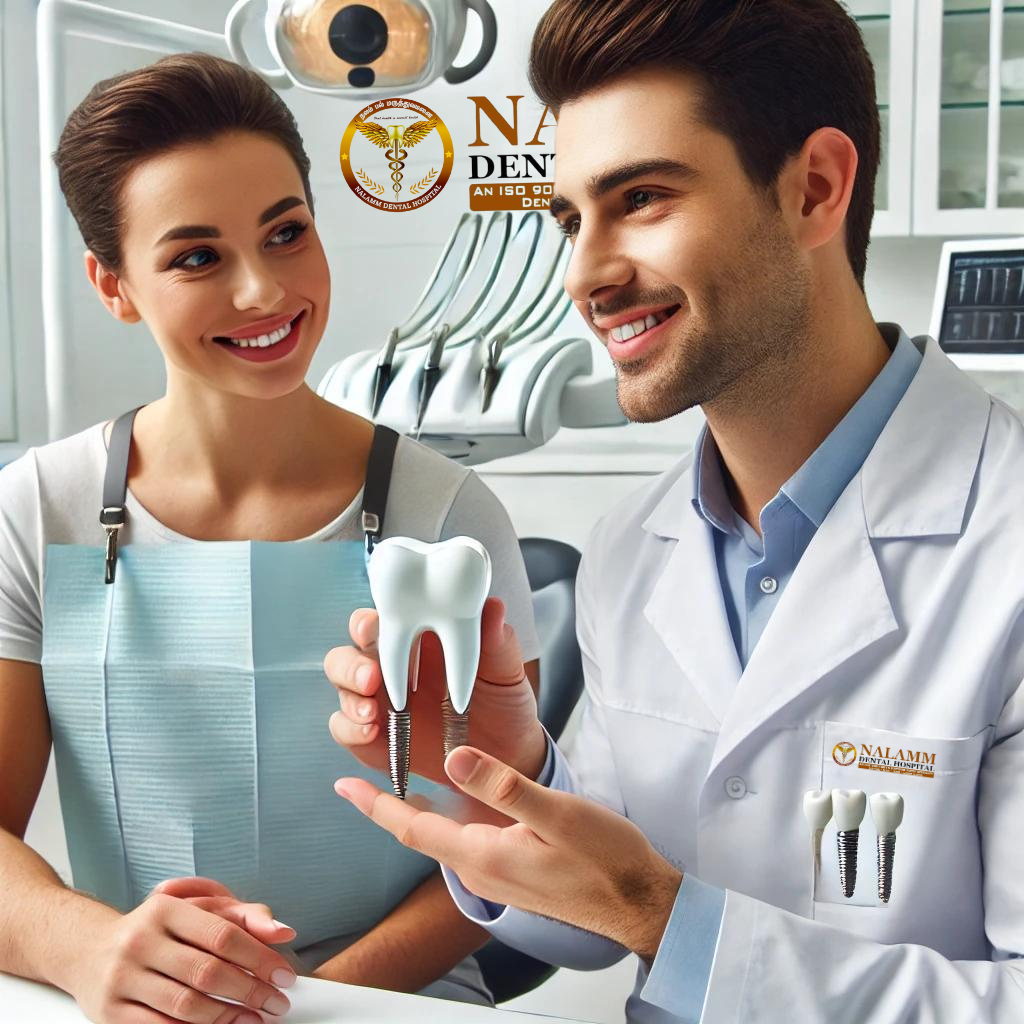Cosmetic Dentistry Near Me Enhancing Your Smile with Cosmetic Dentistry Introduction A beautiful smile can boost your confidence and make a lasting impression. Cosmetic dentistry offers various treatments to help you achieve the smile you’ve always desired. Whether you’re looking to brighten your teeth, fix minor imperfections, or completely transform your smile, there’s a cosmetic dental solution for you. Understanding Cosmetic Dentistry Cosmetic dentistry focuses on improving the appearance of your teeth, gums, and bite. It encompasses a range of procedures aimed at enhancing dental aesthetics, including color, shape, size, alignment, and overall smile appearance. Popular cosmetic dental treatments include teeth whitening, veneers, dental bonding, and Invisalign. Popular Cosmetic Dental Procedures Teeth Whitening: This is one of the most common cosmetic dental procedures. It involves bleaching your teeth to remove stains and discoloration, resulting in a brighter smile. Dental Veneers: Veneers are thin, custom-made shells designed to cover the front surface of your teeth. They are ideal for fixing issues such as chipped, stained, or slightly misaligned teeth. Dental Bonding: This procedure involves applying a tooth-colored resin to repair chipped or cracked teeth. It can also be used to improve the appearance of discolored teeth or to close gaps between teeth. Invisalign: These are clear aligners that offer a discreet way to straighten your teeth. Invisalign is a popular choice for adults and teens who want to avoid traditional metal braces. Benefits of Cosmetic Dentistry Improved Appearance: Cosmetic dentistry can dramatically enhance your smile, giving you a more youthful and attractive appearance. Boosted Confidence: A beautiful smile can significantly boost your self-esteem and confidence, affecting various aspects of your personal and professional life. Enhanced Oral Health: Many cosmetic procedures also improve your overall oral health. For instance, straightening misaligned teeth can make them easier to clean and reduce the risk of cavities and gum disease. Long-Lasting Results: With proper care, the results of cosmetic dental procedures can last for many years, making them a worthwhile investment. Why Choose Nalamm Dental Clinic for Your Cosmetic Dentistry Needs? At Nalamm Dental Clinic, we are committed to helping you achieve the smile of your dreams. Our experienced team of dental professionals uses the latest technology and techniques to deliver exceptional cosmetic dental care. We understand that every smile is unique, and we tailor our treatments to meet your specific needs and goals. How to Prepare for Your Cosmetic Dental Procedure Before undergoing any cosmetic dental treatment, it’s essential to have a thorough consultation with your dentist. Here are some steps to help you prepare: Research: Familiarize yourself with the different cosmetic dental procedures and their benefits. Consultation: Schedule a consultation with your dentist to discuss your goals and expectations. Your dentist will evaluate your oral health and recommend the most suitable treatments. Plan: Work with your dentist to create a treatment plan that fits your needs, budget, and schedule. Follow Pre-Procedure Instructions: Your dentist may provide specific instructions to follow before your procedure, such as avoiding certain foods or medications. Common Questions About Cosmetic Dentistry Q: Is cosmetic dentistry expensive? A: The cost of cosmetic dentistry varies depending on the procedure and the complexity of the case. Your dentist can provide a detailed estimate during your consultation. Q: Are cosmetic dental procedures painful? A: Most cosmetic dental procedures are minimally invasive and cause little to no discomfort. Your dentist will ensure that you are comfortable throughout the treatment. Q: How long do the results of cosmetic dentistry last? A: With proper care and maintenance, the results of cosmetic dental procedures can last for many years. Regular dental check-ups and good oral hygiene are essential to maintaining your new smile. Conclusion Cosmetic dentistry offers a range of treatments to enhance your smile and boost your confidence. At Nalamm Dental Clinic, we are dedicated to providing top-quality cosmetic dental care tailored to your unique needs. If you’re ready to transform your smile, consider cosmetic dentistry as a valuable investment in your overall well-being. Frequently Asked Questions What is cosmetic dentistry? Cosmetic dentistry focuses on improving the appearance of your teeth, gums, and smile. It includes treatments like teeth whitening, veneers, dental bonding, and Invisalign to enhance the aesthetic aspects of your dental health. Who can benefit from cosmetic dentistry? Anyone looking to improve the appearance of their smile can benefit from cosmetic dentistry. It’s ideal for individuals with stained, chipped, misaligned, or unevenly spaced teeth. Are cosmetic dental procedures safe? Yes, cosmetic dental procedures are safe when performed by a qualified and experienced dentist. Always ensure you choose a reputable clinic that follows strict safety protocols. How long do cosmetic dental procedures take? The duration of cosmetic dental procedures varies: Teeth whitening: Typically takes about an hour for in-office treatments. Veneers: Usually require two visits over a few weeks. Bonding: Can be completed in one visit, often within an hour. Invisalign: Treatment duration ranges from several months to a year or more, depending on the complexity of the case. Are cosmetic dental procedures painful? Most cosmetic dental procedures are minimally invasive and cause little to no discomfort. Your dentist will use local anesthesia or sedation as needed to ensure your comfort during the treatment. How long do the results of cosmetic dentistry last? The longevity of cosmetic dental treatments depends on the procedure and how well you care for your teeth: Teeth whitening: Results can last from several months to a few years with proper care. Veneers: Can last 10-15 years or longer with good oral hygiene. Bonding: Typically lasts 3-10 years. Invisalign: Results are permanent if retainers are worn as instructed post-treatment.










